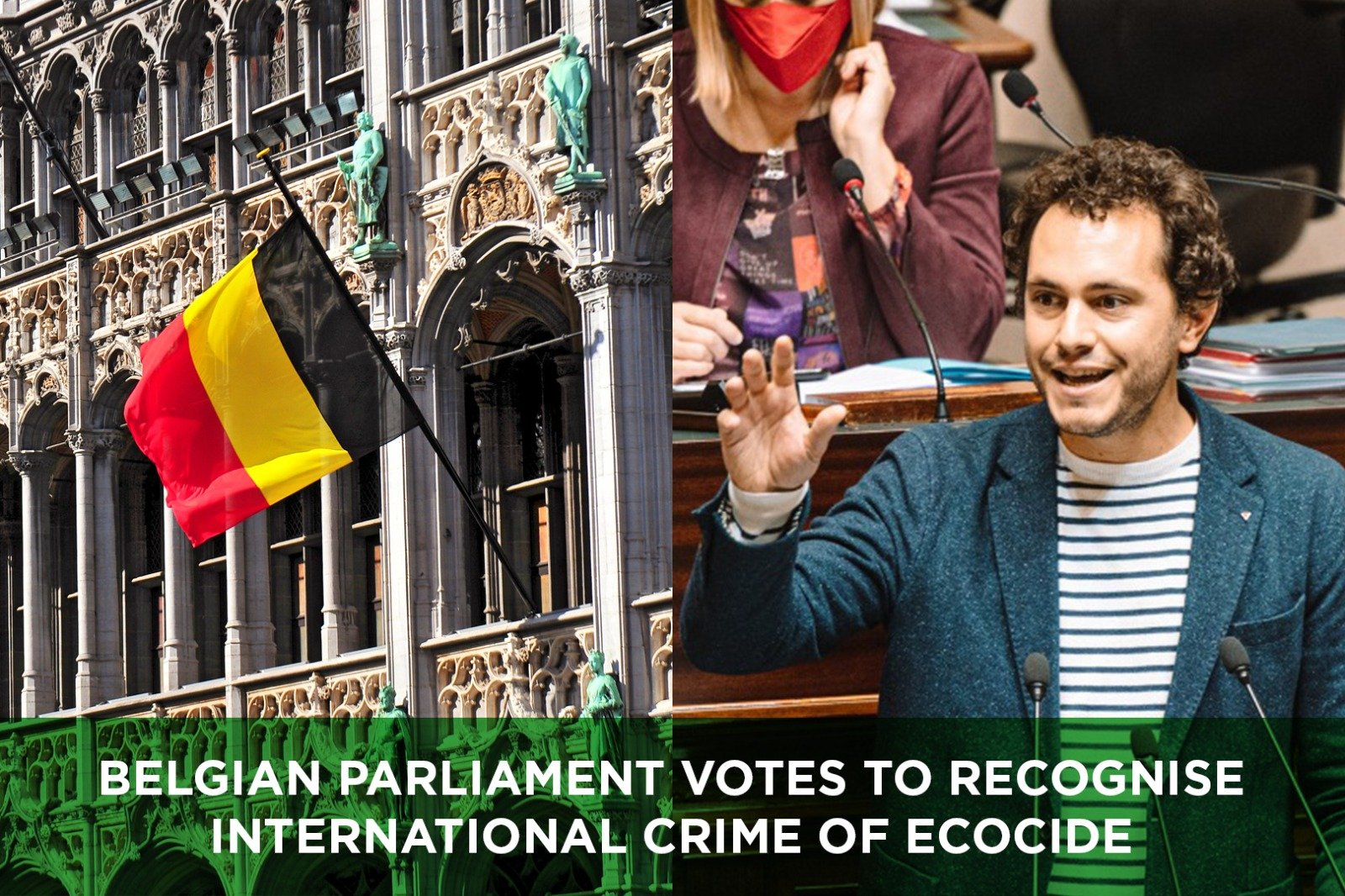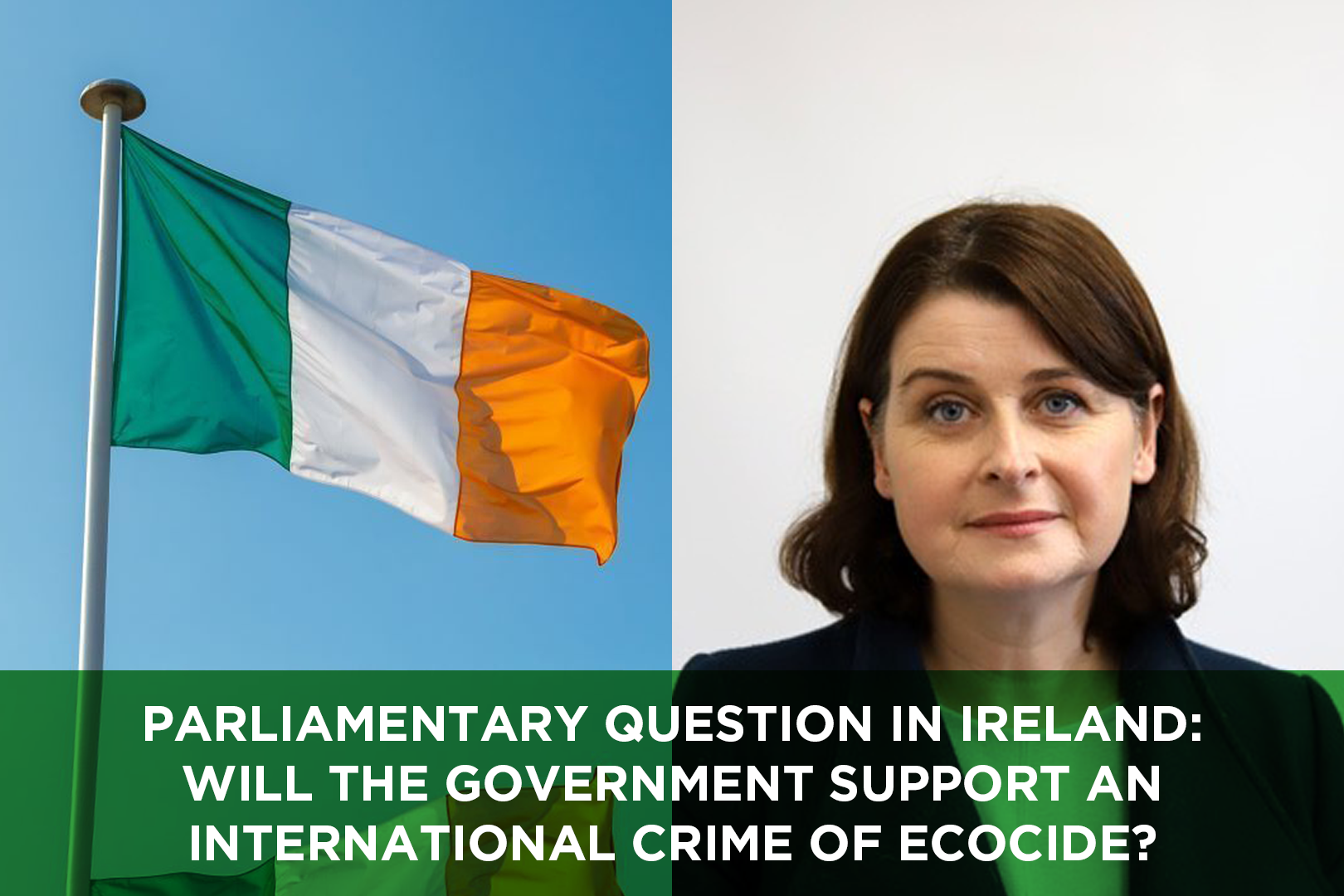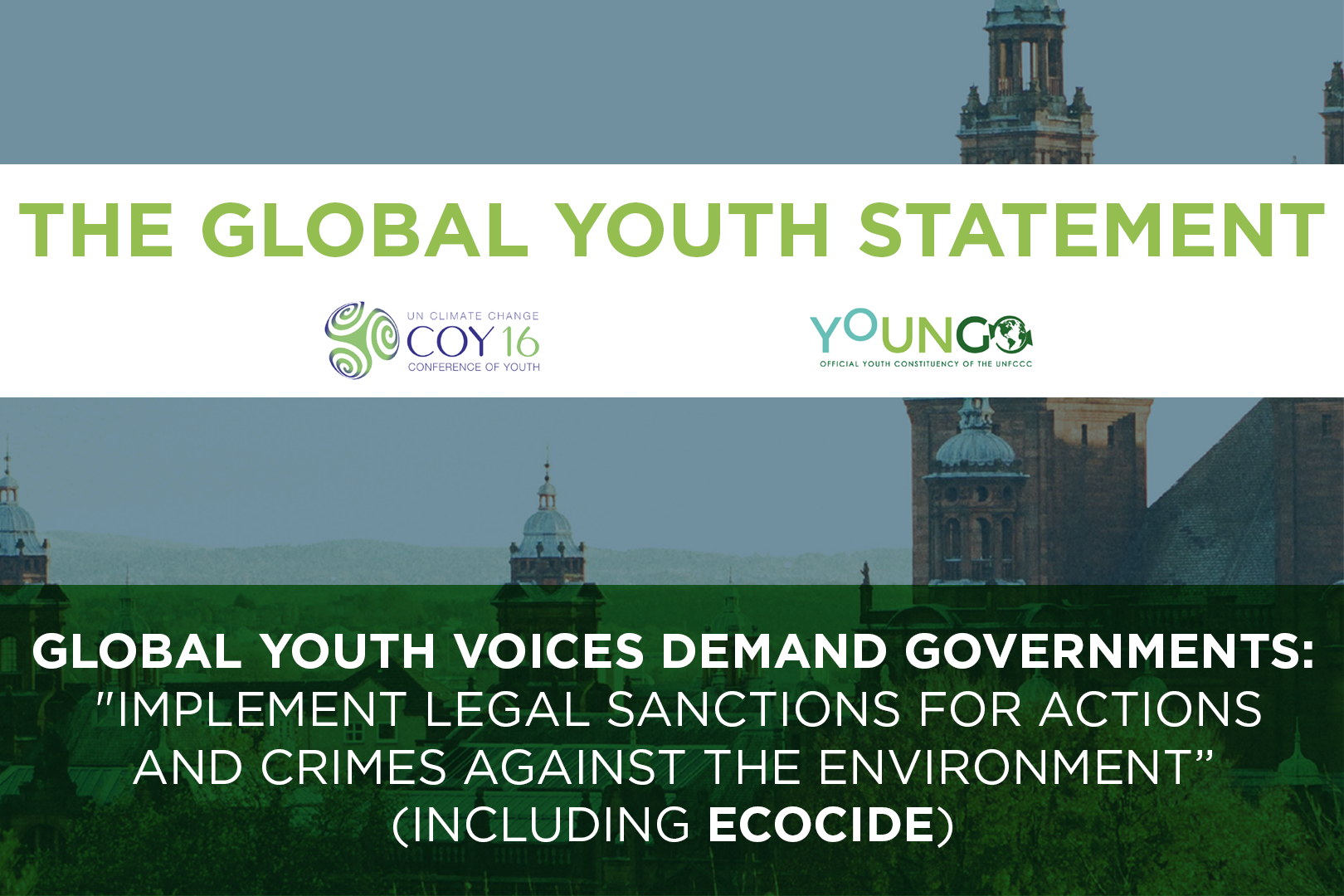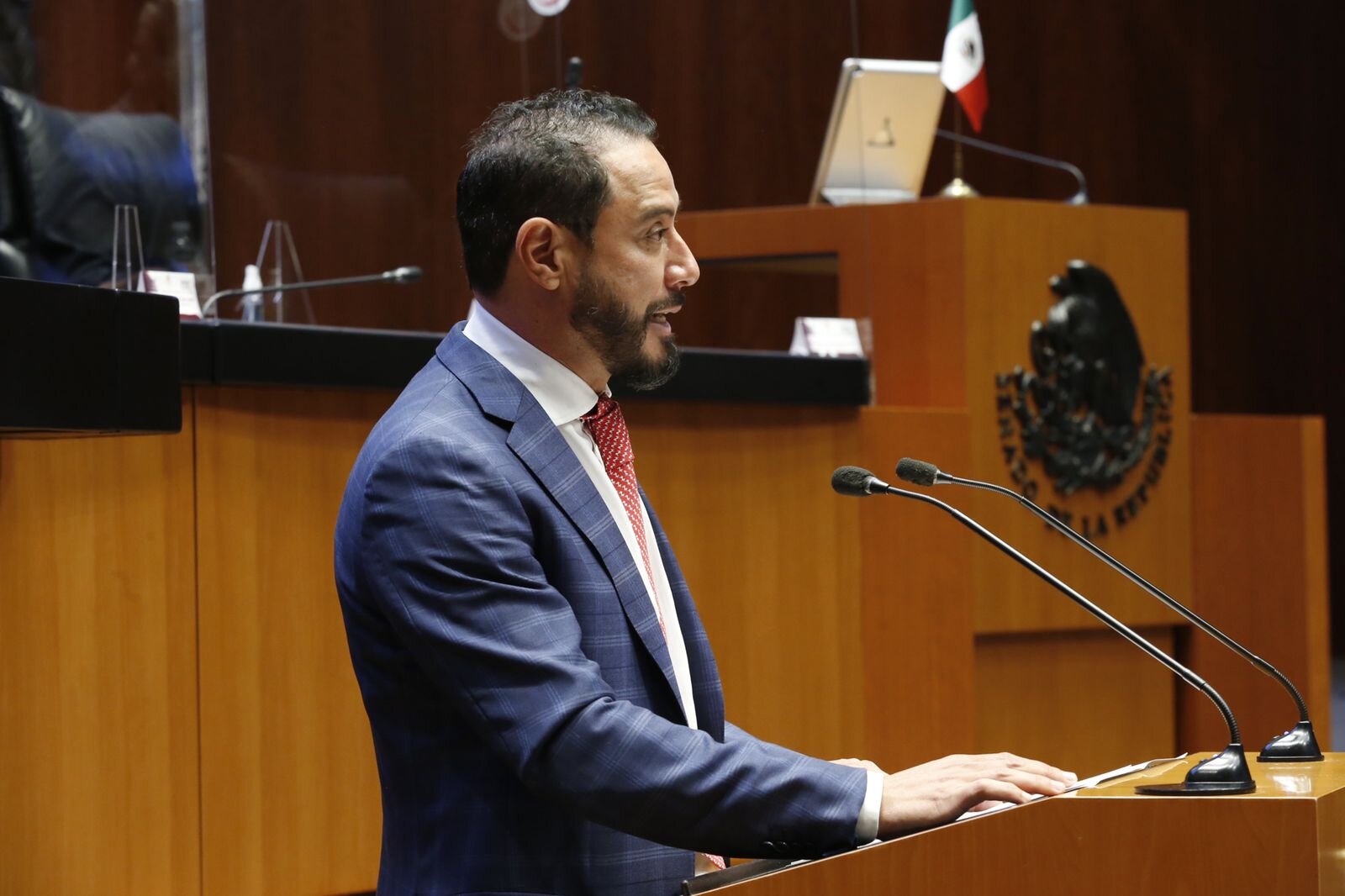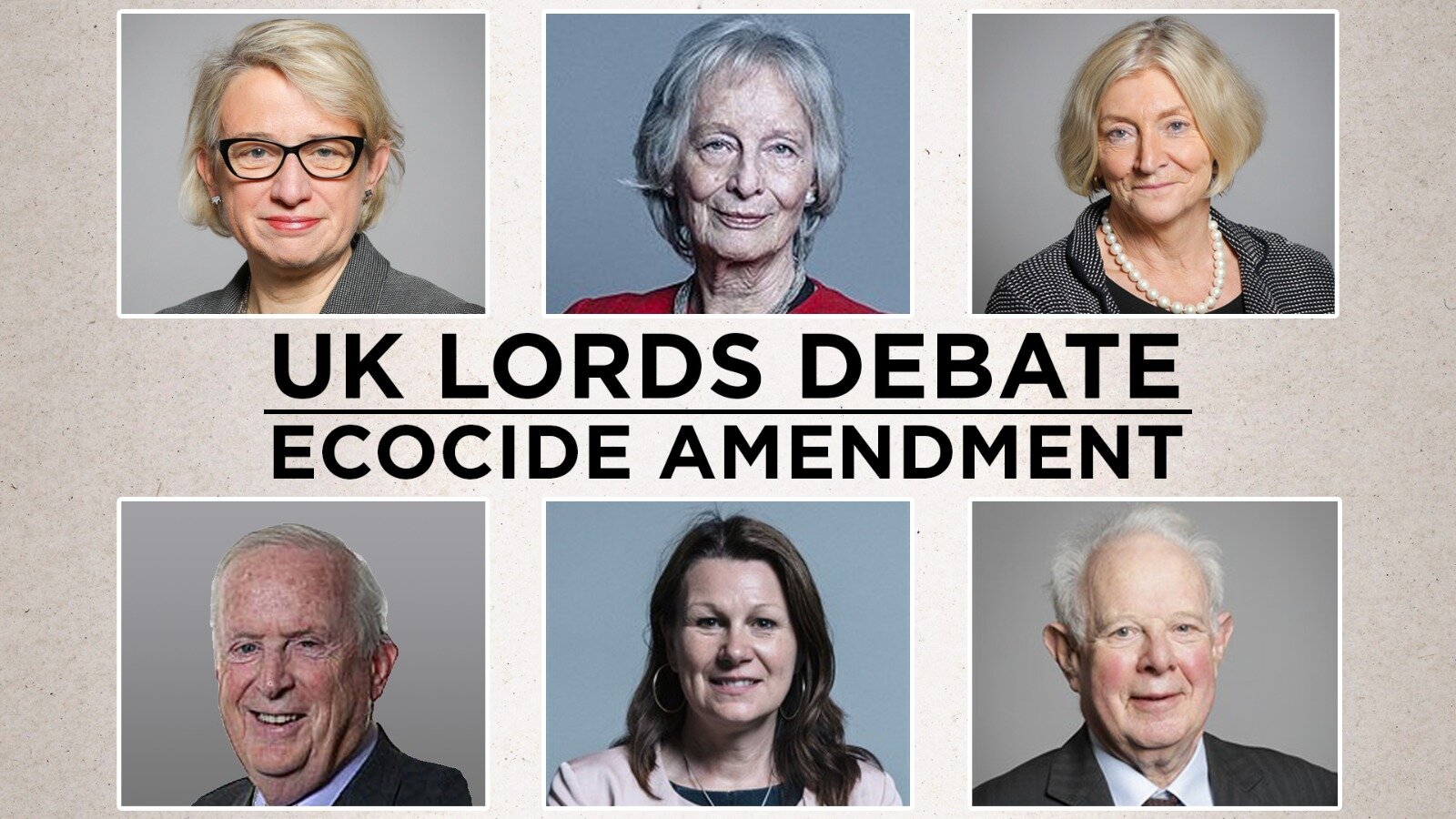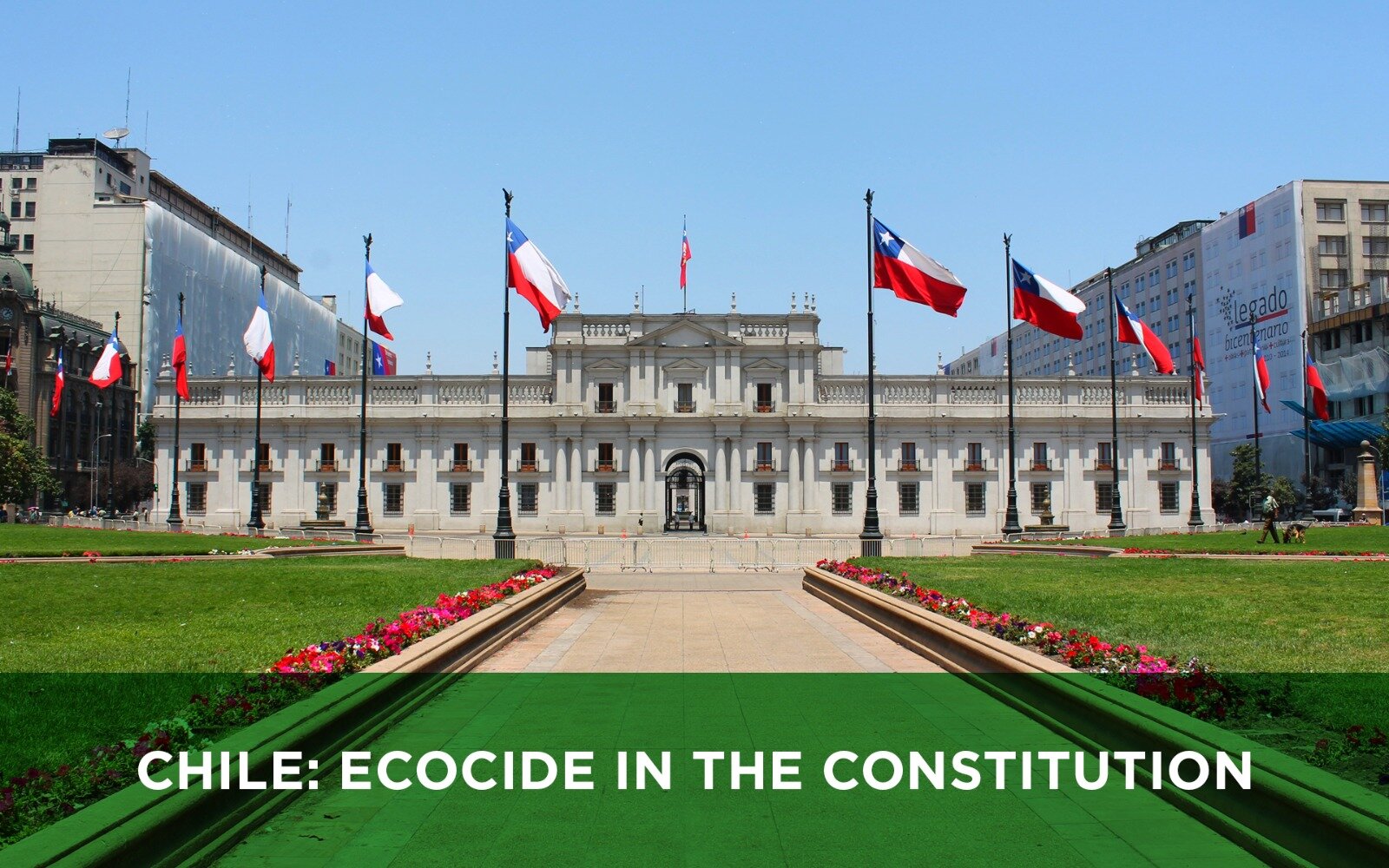20th session of the Assembly of States Parties (ASP) to the Rome Statute of the International Criminal Court
Our Foundation’s statement to the Assembly of States Parties and an historic event co-hosted by three of the world's most climate-vulnerable states, Vanuatu, Samoa and Bangladesh: the presentation of the legal definition of ecocide as a 5th international crime, in the context of the Assembly of States Parties to the Rome Statute of the International Criminal Court.
For a full summary, please click the image.
Belgian parliament votes to recognise international crime of ecocide
The Belgian parliament has adopted, by a strong majority, a resolution by the Ecolo-Groen parties aimed at recognising an international crime of ecocide.
By adopting this resolution, the parliament is making three demands of the Belgian government. It asks:
to "initiate a new international treaty of the most proactive countries (a 'coalition of the willing') to prosecute and prevent ecocide at the international level";
to "propose an amendment to the Rome Statute of the International Criminal Court of The Hague to include the new crime of ecocide" (in the same way as crimes against humanity); and
"to report to parliament on the upcoming expert opinion on the inclusion of the crime of 'ecocide’ in the Belgian penal code ".
The resolution was supported by the foreign affairs committee last month and has now been confirmed by this week’s plenary vote.
Proposer Samuel Cogolati is thrilled, calling it a “key day for the planet”.
This vote will encourage the government to make good on its suggestion at last year’s Assembly of State Parties of the International Criminal Court that “it would be useful to examine the possibility of introducing crimes known as ‘ecocide’ into the Rome Statute system in the context of the work of our upcoming sessions”.
Parliamentary question in Ireland: Will the government support an international crime of ecocide?
Simon Coveney, Minister of Foreign Affairs for the Republic of Ireland, was put on the spot in the Daíl by Jennifer Whitmore TD on the subject of ecocide law during parliamentary questions on 11th November.
"Will your government take a lead on this issue and actually work with [the legal drafting] panel to progress the definition of ecocide and its subsequent incorporation into the Rome Statute?" (Watch here)
The Minister declined to answer immediately but promised to return to Ms Whitmore with a fuller answer if she would write to or call him.
UK Labour Party to support criminalising ecocide
Speaking at an independent panel event on Ecocide Law and Climate Justice, hosted by Stop Ecocide International during COP26 in Glasgow (along with co-hosts Global Witness, Client Earth and Climate Counsel), Shadow Secretary of State for Justice, David Lammy MP publicly announced the commitment of the Labour Party to support discussions around an international crime of ecocide.
"I think that we should be hopeful, and this is why I am very pleased that I, as Shadow Justice Secretary, have committed the Labour Party to assisting with this cause" (David Lammy MP)
See recording at 1:22:40mins
World’s first Global Citizens’ Assembly calls for ecocide to be enforced
The Global Citizens’ Assembly has voted that the crime of Ecocide should be enshrined in international and national laws, and that it should be firmly enforced. The Global Assembly’s declaration, which is being presented to world leaders at the COP26 Climate Conference, says Ecocide should be “firmly enforced alongside existing environmental protection laws.”
The assembly defines Ecocide as: “Unlawful or wanton acts committed with knowledge that there is a substantial likelihood of severe and either widespread or long-term damage to the environment being caused by those acts.” It could possibly make some governments, corporations and individuals guilty of an international crime.
The Global Assembly is supported by UN Secretary General António Guterres and COP26 President Alok Sharma MP. It is a new piece of infrastructure, which ensures everyday people have a seat at the global governance table. The Global Assembly consists of a Core Assembly and Community Assemblies. The Core Assembly is 100 citizens who are an accurate snapshot of the world's population by gender, age, geography, education and attitude to climate change, selected by a global lottery based on Nasa population data, meaning that anyone on earth could be chosen. Anyone in the world, can participate through running or attending a Community Assembly. All participants are supported by world class experts to understand the climate and ecological crisis.
The Global Assembly resolved to endorse the Paris agreement, which aims to limit global heating to 1.5 degrees. The assembly resolved that: “The [Paris] Agreement has to be strictly enforced and monitored by the United Nations, in collaboration with the relevant actors at all levels of governance.”
But the assembly says mitigation should be equitable. “Developed countries should assist developing countries in building up autonomous capabilities for climate action, particularly in financial and technological terms,” the declaration says.
The Global Assembly’s full declaration for action was released at an event in the COP26 Green Zone Imax Theatre at 1300 UTC on 1 November, 2021.
Global asset managers call for ecocide law
The International Corporate Governance Network, a global investor-led network whose members control over half the world’s assets under management ($59 trillion) has called on governments to collaborate internationally on criminalising ecocide.
The ICGN’s full official statement for COP26 is here. The statement acknowledges the stark and inter-related threats of climate change and biodiversity loss and states that: “Corporate boards, management, investors, the auditing profession, standard setters and others have unique responsibilities to clearly identify challenges, determine solutions, and implement assertive action.”
Amongst its recommendations, the statement urges governments to “mandate regulation and collaborate internationally to criminalise ecocide.”
A spokesperson for the network explained that “legal remedies… are viewed as part of a system of legal deterrence that can be of great value… Given the urgency of the challenges we face, [ecocide] is a concept that needs to advance.”
COY16: Global youth voices demand ecocide law
The 16th UN Climate Change Conference of Youth which took place right before COP26, brings together young delegates from all around the world and serves as a space for capacity building, networking and policy training.
One of the major outputs of COY16 is the policy document crafted by youth voices globally, the Global Youth Statement, which tackles various topics.
Under the demand "Politics and Policy making", they demand governments: "To implement legal sanctions for actions and crimes against the environment (including ecocide), especially those coming from big corporations and fossil-fuel companies."
Mexico: proposal of law to recognise ecocide as a serious crime
On Thursday 23rd September, Senator Raúl Paz Alonzo presented a bill before the Senate to reform the Federal Criminal Code and make Ecocide a serious crime in Mexico. Until now, the crime against the environment only contemplated economic sanctions, but this is a big change since anyone who commits ecocide could be deprived of liberty under the new law.
In his speech, Raúl Paz Alonzo highlighted the environmental crisis that Mexico and the world are experiencing and, referring to the most recent report of the UN's International Panel on Climate Change (IPCC), he highlighted the risk of disappearance of countries such as Vanuatu due to rising seas caused by rising temperatures.
In his presentation of the law, the PAN Senator for Yucatan spoke of the international movement of parliamentarians and civil organisations to make ecocide an international crime and explained that the presentation of this bill is in line with this effort to put Mexico at the forefront in the defence of the planet and in the fight against the climate emergency it is experiencing:
"...In union with NGOs, governments, activists and experts, we seek to create an international ecocide law. Climate change is a reality that cannot go unnoticed... We are all connected: what happens in the Amazon affects Mexico with sargasso, what happens in Africa affects Europe, even two islands in the Pacific are about to disappear if the sea level continues to rise due to the melting of the poles...".
On Mexico, Alonzo emphasized the current water crisis in Mexico where - citing data from April 2021 from the National Water Commission CONAGUA - more than 70% of the territory has drought problems and he also took up data from the National Commission for the Knowledge and Use of Biodiversity on the loss of species in the country. In the words of the Senator:
"In Mexico, we must join this trend in the face of this climate emergency, creating facts and actions that allow us to solve the crisis caused, by means of a reform to our Criminal Code, by introducing the crime of ecocide. So that in addition to the economic sanctions that are in the law on climate change, it is punishable by imprisonment and so that people think twice before authorising or ordering the total or partial destruction of fauna, flora or any ecosystem in our country...".
According to Maite Mompó, coordinator of the Stop Ecocide campaign for the Americas, "the ecocide law initiative presented in Mexico puts this country at the forefront of Spanish-speaking countries that want to protect the environment effectively for future generations. This protection necessarily involves the creation of criminal laws that establish the individual responsibilities of those who cause ecocide. We will closely follow the development of this law.”
The proposed law will be debated in the Senate's Justice and Legislative Studies Committees and is expected to be passed in the coming weeks.
Fridays for Future call on world leaders to commit to making ecocide an international crime.
Fridays for Future
Call on world leaders to:
Recognize the invaluable impact of biodiversity on indigenous communities’ lives and culture, and commit to make ecocide an international punishable crime.
Read full message to world leaders HERE
"We are delaying while the planet burns"
An excellent debate took place this week in the UK’s House of Lords following submission of a revised amendment to the Environment Bill by Baroness (Natalie) Bennett.
Environmental bill - Amendment 126:
Ecocide
(1) It is an objective of Her Majesty’s Government to support the negotiation of an amendment to the Statute of the International Criminal Court, done at Rome on 17th July 1998, to establish a crime of ecocide.
(2) In pursuance of subsection (1), a relevant Minister of the Crown must promote discussion of such an amendment, either independently or jointly with other sovereign states, within the Working Group on Amendments of the International Criminal Court within 12 months of this Act being passed.
(3) In this section “ecocide” refers to unlawful or wanton acts committed with knowledge that there is a substantial likelihood of severe and either widespread or long-term damage to the environment being caused by those acts."
The government response, via Minister for Environment and the Pacific Lord (Zac) Goldsmith, repeated its lukewarm position of earlier in the summer: the UK was more interested in the ICC being better able to enforce existing crimes than in supporting new ones. While this meant the amendment did not go through, support in the House was significant:
Baroness Boycott: “the single most important thing about this initiative is that it’s part of that broader process of changing public consciousness, recognising that we are in a relationship with our environment.”
Baroness Whitaker: “we have very good diplomats, whose job is to build consensus. They should be tasked to make a start on this case. We need to make a good showing at Glasgow, do we not?”
Lord Thomas of Cwmgiedd: “this must be an opportunity for global Britain to show leadership on one of the most serious criminal offences of our time. We can do it, and we should not fail.”
Baroness Hayman of Ullock: “the noble Baroness explained in the introduction to her amendment, unlike her amendment in Committee, she is calling for the Government to promote discussion of this. This seems to me to be a thoroughly reasonable request.”
Baroness Bennett expressed her disappointment with the government’s response: “we really are delaying while the planet burns.”
Chile: ecocide in the Constitution
The Subcommittee on the General Framework for Human, Environmental & Natural Rights of the Constitutional Convention held discussions on ecocide, resulting in a favourable vote (10 votes in favor, 1 against, 2 abstentions) for an annex to be added to the new Chilean constitution.
The first draft of the annex is available in Spanish here.
(Unofficial English translation)
We will be keeping a close eye on developments.


